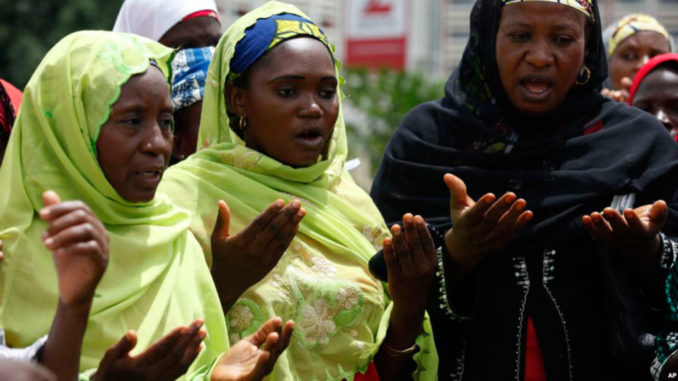
AS the dust settles after the general elections, the minimal influence of women in Nigeria’s politics, and by extension, other spheres of national life, is glaring. In 2023, 378 women ran for Senate and House of Representatives seats, but only 17 were successful.While all the current female senators are not returning, seven of the current 13 female members of the House in the Ninth National Assembly also lost their re-election bids. Nigeria needs to adopt effective policies to attract more women into decision-making at all levels in public and private affairs.
While some democracies and emerging economies are making strides with greater female visibility in public affairs, Nigeria appears to be backsliding. In the Ninth NASS, only seven of the 109 senators are women; aside from two – Oluremi Tinubu, who is the wife of the President-elect, Bola Tinubu, and Aisha Dahiru, who ran for the Adamawa State governorship, – the others lost their bids to return.
Barring changes by court decisions, only three women will be in the Senate and 14 in the 360-member House. Seven women won seats for the first time in the House. The figure of 17 women only out of the 469 federal lawmakers in the 10th NASSis a pitiable 3.62 percent.
Yet, quoting diverse sources, Nigeria’s total female population by 2021 was 105.57 million, and male 107.83 million. Countrymeters put the country’s population sex ratio in 2022 at 1,026 males per 1,000 females. The under-representation is glaring. Women groups complain that women are similarly under-represented in government and in the private sector.
The United Nations Women emphasises the importance of representation for every part of the population and of involving women in decision-making. It declared,“Women’s equal participation and leadership in political and public life are essential to achieving the Sustainable Development Goals by 2030.”
But 24 years since the return to democratic rule, women are still far behind in Nigeria’s political space. There are a few deputy governors; one state House of Assembly speaker was impeached by her male colleagues.
Nigeria’s National Gender Policy recommended affirmative action and sought a more inclusive representation of women with at least 35 percent of both elective political and appointive public service positions respectively.
In 2022, a Federal High Court in Abuja ordered the Federal Government to comply with the 35 per cent stipulation, which allows women to occupy 35 per cent of all appointments.
Delivering judgement in a suit filed by Women in Politics Forum, an NGO, the judge, Donatus Okorowo, said the government had the obligation to implement the 35 per cent rule, accusing past governments of acting in breach of international treaties on women participation in government. He stressed that the intention is not merely a policy statement, but one that must be backed with requisite action by the government.
That judgement has not been obeyed, and despite efforts by women to ensure greater inclusion in political leadership, they are at the mercy of elected presidents and governors for appointments, and of party chiefs for nominations to contest elective offices.
Last year, the federal lawmakers rejected five gender bills, prompting women activists to picket the parliament building in Abuja, demanding passage of the bills.
Following the protests, the House rescinded its decisions on three out of the bills.The House overturned its decision on the bill that seeks to amend section 26 (2a) of the 1999 Constitution by opening citizenship registration to males and females. If the bill is passed, foreigners married to Nigerian women can apply for Nigerian citizenship.
There is a need to ensure that every institutional constraint on the way to women empowerment, especially in politics and leadership, is disenabled to enhance their contributions to socio-economic development.
A study by the National Bureau of Statistics revealed only three out of the 109 members in the Senate in 1999 were women, representing 2.75 percent, while 12 out of 360 members or 3.33 percent of the House were women. After the 2019 elections, only seven females or 6.42 percent emerged in the 109-seat Senate and just 13 females in the lower chamber. At the administrative leadership level, of the 43 ministers in Buhari’s cabinet, only seven are female (16.28 percent), while 26.2 percent of Nigerian judges are women.Out of the 13 current Justices of the Supreme Court, only three are females (23 percent).
Several African countries are doing better. Some East African countries have at least 25-33 percent gender participation at the national and sub-national levels. Rwanda records the highest with 61.3 percent women holding parliamentary seats. In Namibia and South Africa, voluntary quotas were deliberately adopted by the political parties to enhance women participation, leading to 46.2 percent and 42.4 percent political representation respectively.
Citing extensive studies, UNW said increasing the number of women in decision-making positions is vital for political accountability and “genuine democracy.” Consequently, bringing about sustainable socio-political and economic development requires initiating laws and policies that advance women inclusion. Societies that promote and protect human rights do better in advancing the cause of women.
Governments at the national, state, and local levels should strive for increased participation of women.Priority should be given to girl-child education and full implementation of the Child Rights Act.
Women have made their mark in political leadership and development. Golda Meir, as the fourth prime minister of Israel, helped lay the foundation for its success; leadership in Bangladesh has oscillated between two remarkable women; Indira Gandhi was twice India’s prime minister, and Margaret Thatcher was the “Iron Lady” leader that transformed the UK’s economic structure in the 1980s. Angela Merkel, as Germany’s chancellor, stabilised her country and Europe during difficult economic and immigration crises.
As of January, says UNW, 34 women serve as heads of state of governments; while 17 countries have women as heads of state, 19 have women as heads of government. Nigerian women should continue the struggle.The federal and state governments should consciously set out to enhance their status.
Punch
END

Be the first to comment